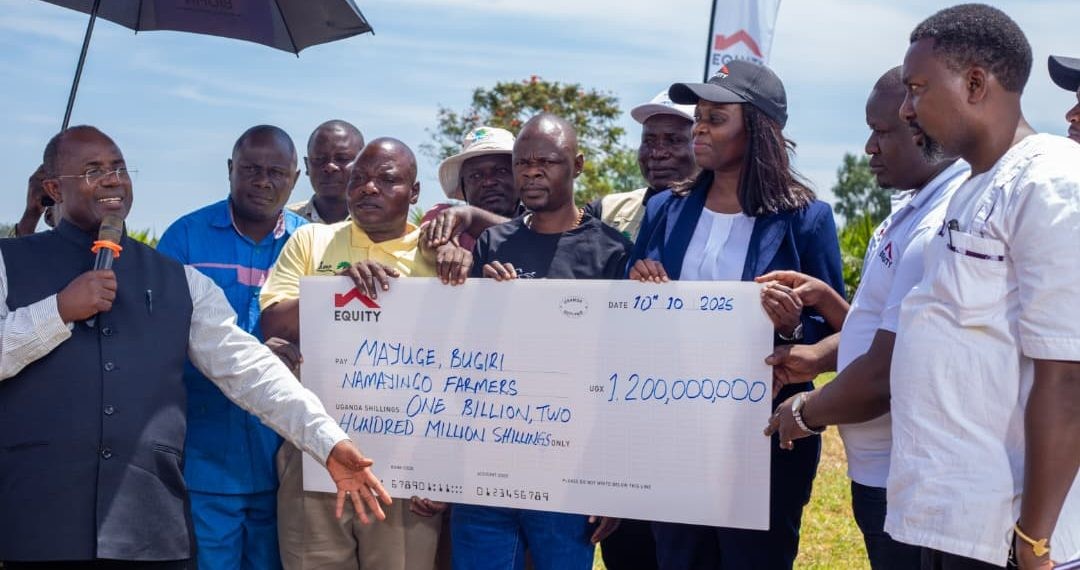By: Boy Fidel Leon
Every seed needs fertile ground. On Friday, the Government of Uganda planted a different kind of seed in Busoga. A commercial agriculture initiative designed to break the cycle of rural poverty that has gripped the region for decades.
The National Oil Palm Project was officially launched in Mayuge, Namayingo, and Bugiri districts, with State Minister for Agriculture Fred Bwino Kyakulaga presiding.
The government has appointed Equity Bank Uganda as fund manager of the credit facility, which will oversee disbursements and build financial capacity among smallholder farmers across the Busoga sub-region.
The numbers are significant. Equity Bank has already extended UGX 1.23 billion to 896 farmers in the three pilot districts within under two years, money that has gone toward quality seedlings, pesticides, fertilisers, and training in the best agricultural practices.
“This move is going to go a long way in transforming the people of Busoga from the chronic poverty which has affected them for so long,” Kyakulaga said. “Uganda alone, even without exporting, already has a ready market for palm oil, soap, cosmetics, and other products. Each farmer will earn about UGX 2.5 million monthly at harvest for up to 30 years.”
The project, financed through a loan from the International Fund for Agricultural Development (IFAD), targets farmers with at least five hectares of land. Eligible participants can access up to UGX 25 million in financing, though those with smaller plots qualify for proportional support.
Not all funds flow directly to farmers. A part goes to vetted suppliers who provide inputs and technical expertise to ensure proper implementation.
Catherine Psomgen, Equity Bank’s Director for Public Sector and Social Investments, emphasised the bank’s role extends beyond money transfer.
“Our role is not just to disburse money, but to build trust, ensure efficiency, and promote sustainable growth,” she said. “We employ modern banking systems to track every transaction, verify beneficiaries, and ensure that funds reach genuine oil palm farmers in record time.”
This accountability matters. Agricultural development schemes often collapse under opacity and mismanagement. Equity Bank’s commitment to transparency, tracking every shilling, verifying each farmer, signals a different approach.
The bank has dedicated 30% of its loan portfolio to food and agriculture through its Africa Resilience and Recovery Plan.
Phase One covers Buvuma, Mayuge, Bugiri, and Namayingo. Kamuli, Iganga, Jinja City, Bugweri, Namutumba, Luuka, and Kaliro are scheduled for inclusion next year.
But the government isn’t placing all its bets on palm oil alone. Alternative livelihoods such as aquaculture and piggery are also being supported to ensure non-participating households benefit from the broader initiative.
“This is not just about growing oil palm,” Kyakulaga said. “It’s about uplifting every household within these communities.”
For farmers in Busoga, the opportunity is concrete: sustainable income, technical support, and access to markets that currently exist but remain out of reach.
Equity Bank has framed this as a journey from farm to market. Not just credit, but partnership.


